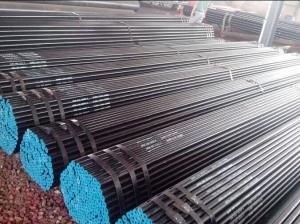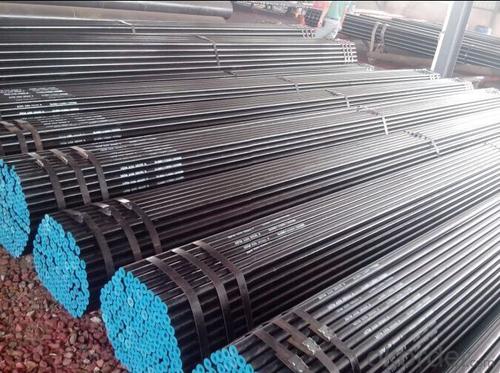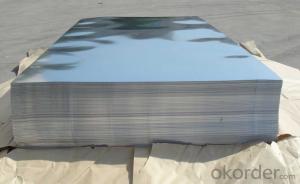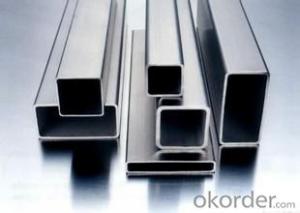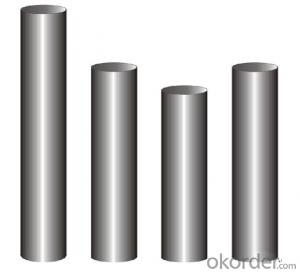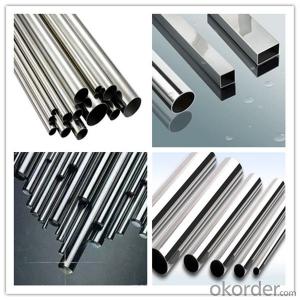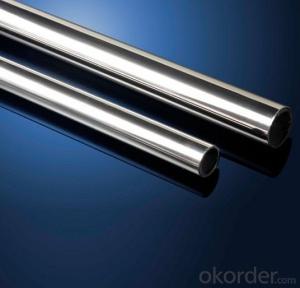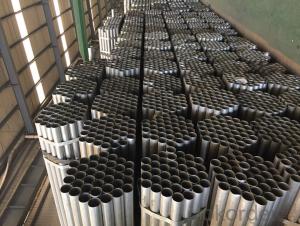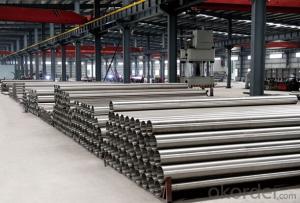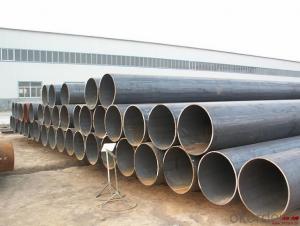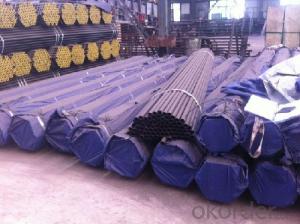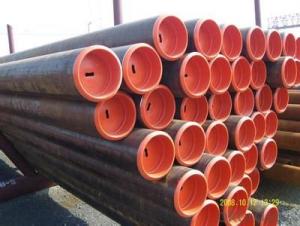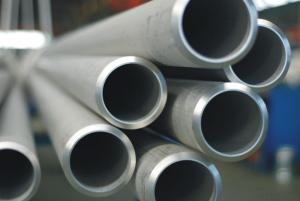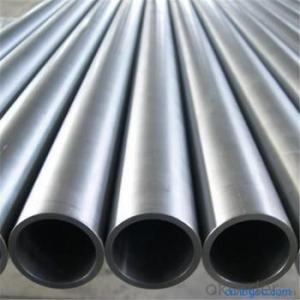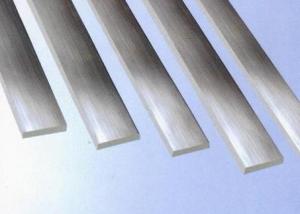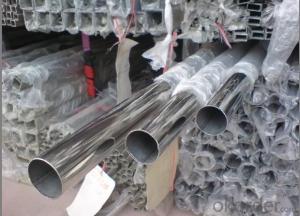Sales of Various Models for the Stainless Steel Pipe
- Loading Port:
- Tianjin
- Payment Terms:
- TT or LC
- Min Order Qty:
- 30 m.t.
- Supply Capability:
- 4000 m.t./month
OKorder Service Pledge
OKorder Financial Service
You Might Also Like
1、Structure of Heat Exchanger Stainless Steel Pipe TP304 ASTM A213 Description:
Boiler Heat Exchange stainless steel pipe is often used in the heating system. Heating system, or those stored energy (such as solar energy) in the form of heat, need to be built with the material that can withstand temperatures up to 550 degrees Celsius. High chromium molybdenum welded steel pipe can work in the extreme, which maintain as the ideal material for the construction of power station.
2、Main Features of Heat Exchanger Stainless Steel Pipe TP304 ASTM A213:
• High manufacturing accuracy
• High strength
• Small inertia resistance
• Strong heat dissipation ability
• Good visual effect
•Reasonable price
3、Heat Exchanger Stainless Steel Pipe TP304 ASTM A213 Specification:
1)Commodity: heat exchanger pipe
2))Material: 304,316L,304L,316,321,310S,etc
3)Thickness:0.5-100mm
4)Length: 1-14m
| Material Grade | 304,304L,316 ,316L,321,310S,2205,904and so on. |
| Standard | ASTM A312, A554, A249, A269 and A270,ect |
| DIN 17456-85 , DIN 17458-85, DIN 17459-92,ect | |
| JIS G3446-1994, JIS G3448-1997, JIS G3459-1997, JIS G3463-1994,ect | |
| GB13296-1991, GB14975-2002, GB14976-2002,ect | |
| Outer Diameter | 13.7-2020mm |
| Thickness | 0.5-50mm |
| Length | 1m -12m or as customers' request |
| Polish | 180G, 320G, 400G Satin / Hairline |
| 400G, 500G, 600G or 800G Mirror finish | |
| Test | eddy current inspection, ultrasonic inspection, X-ray inspection, real-time imaging, hydrostatic test, spectral analysis, intergranular corrosion, water pressure test, and mechanical property testing facilities. |
| Payment | 1) by L/C at sight, |
| 2) 30% deposit, 70% balance before Shipping. | |
| Delivery time | A.7 days if this goods is stock goods. |
| B.25 days if this goods will be produced after order | |
| Validity | Valid time is 3 days for price usually. |
| Payment terms | FOB QINGDAO |
| MOQ | 1 ton |
| Capacity | 1000 ton per month |
| Certificate | ISO, SGS, and third part inspection |
| Applications | the products are widely used in chemical industry, condenser pipe, heat exchanger, petroleum, shipping military, environment protection, high temperature resistant, low temperature resistant, corrosion resistant and so on. |
| packing details | 1) Wooden-box Package. 2) The Wooden Frame Packing. 3) Intertexture Cloth Packaging with the Iron Sheet Bonding and the Two Terminals Covered With Plastic Dome. |
4、Heat Exchanger Stainless Steel Pipe TP304 ASTM A213 Images:
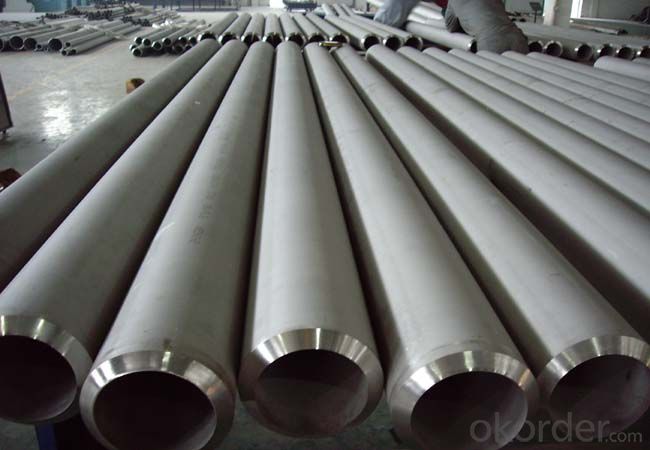
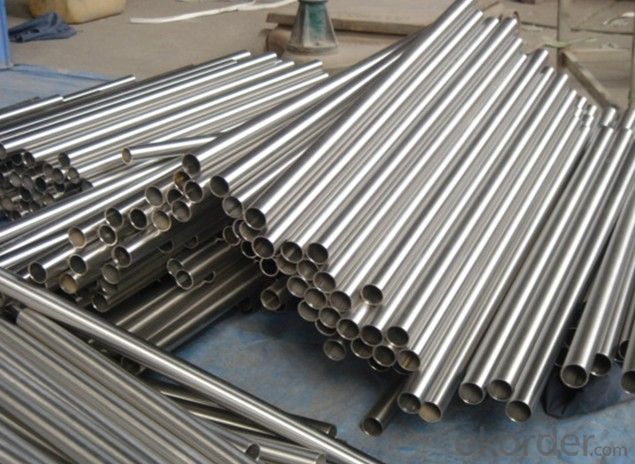
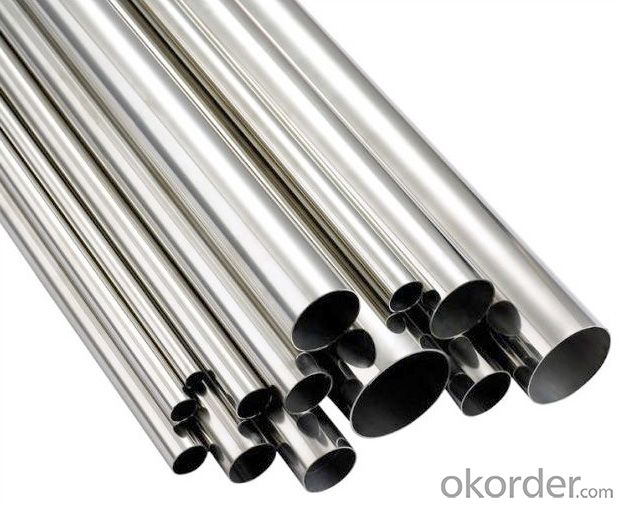
5、FAQ of Heat Exchanger Stainless Steel Pipe TP304 ASTM A213:
①How is the quality of your products?
Our products are manufactured strictly according to national and internaional standard, and we take a test on every pipe before delivered out. If you want see our quality certifications and all kinds of testing report, please just ask us for it.
Guaranteed: If products’ quality don’t accord to discription as we give or the promise before you place order, we promise 100% refund.
②How about price?
Yes, we are factory and be able to give you lowest price below market one, and we have a policy that “ for saving time and absolutely honest business attitude, we quote as lowest as possible for any customer, and discount can be given according to quantity”,if you like bargain and factory price is not low enough as you think, just don’t waste your time.Please trust the quotation we would give you, it is professional one.
③Why should you chose us?
Chose happens because of quality, then price, We can give you both.Additionally, we can also offer professional products inquiry, products knowledge train(for agents), smooth goods delivery, exellent customer solution proposals.Our service formula: good quality+good price+good service=customer’s trust
SGS test is available, customer inspection before shipping is welcome, third party inspection is no problem.
Any question, pls feel free to contact us !
- Q: Can stainless steel pipes be used for underground drainage systems?
- Indeed, underground drainage systems can utilize stainless steel pipes. Stainless steel proves to be a robust and corrosion-resistant substance capable of enduring the harsh conditions commonly encountered beneath the surface, encompassing moisture, soil chemicals, and fluctuating temperatures. Furthermore, stainless steel pipes exhibit resistance to rust, a prevalent issue faced by alternative pipe materials. Moreover, their extended lifespan and minimal maintenance demands render stainless steel pipes a fitting selection for underground drainage systems.
- Q: Can stainless steel pipes be used for refrigeration systems?
- Indeed, refrigeration systems can utilize stainless steel pipes. Stainless steel, being an exceedingly robust material, exhibits exceptional resistance against corrosion, rendering it perfectly suitable for deployment in refrigeration systems where both moisture and low temperatures are prevalent. Moreover, stainless steel pipes boast remarkable thermal conductivity, facilitating efficient and effective heat transfer throughout the entire system. Furthermore, stainless steel pipes are effortlessly cleanable and maintainable, while also demonstrating the capacity to withstand significant pressure, thereby making them highly appropriate for deployment in refrigeration systems necessitating unwavering and enduring performance.
- Q: Can stainless steel pipes be mirror polished?
- Yes, stainless steel pipes can be mirror polished.
- Q: Do stainless steel pipes require any special coatings?
- Stainless steel pipes, being resistant to corrosion and staining, are highly durable and long-lasting. Their inherent corrosion resistance eliminates the need for extra coatings or treatments. The presence of chromium in the alloy composition creates a protective oxide layer on the surface, preventing rust and corrosion. As a result, stainless steel pipes can be used in various applications without the necessity of special coatings for protection.
- Q: What is the difference between electropolished and mechanically polished stainless steel pipes?
- The main difference between electropolished and mechanically polished stainless steel pipes lies in the method used to achieve the desired surface finish. Electropolishing involves immersing the pipe in an electrolyte solution and applying an electric current, which removes a thin layer of metal and impurities, resulting in a smooth, clean, and corrosion-resistant surface. On the other hand, mechanical polishing involves abrasive materials, such as sandpaper or polishing wheels, to physically remove imperfections and create a smooth surface. Both methods can enhance the aesthetics and performance of stainless steel pipes, but electropolishing offers superior cleanliness, corrosion resistance, and a more uniform finish.
- Q: Can stainless steel pipes be used in the agriculture industry?
- Yes, stainless steel pipes can be used in the agriculture industry. Stainless steel pipes are highly resistant to corrosion, making them ideal for agricultural applications where exposure to moisture, chemicals, and other corrosive substances is common. They are commonly used for irrigation systems, water supply lines, and various agricultural processes that require durable and long-lasting piping solutions. Additionally, stainless steel pipes are hygienic, easy to clean, and can withstand high temperatures, making them suitable for agricultural processes that involve food production and processing.
- Q: Are stainless steel pipes suitable for cryogenic applications?
- Stainless steel pipes are indeed suitable for cryogenic applications due to their exceptional low-temperature properties. This material proves to be an ideal choice when dealing with extremely cold temperatures in cryogenic applications. Its impressive strength, outstanding resistance to corrosion, and commendable thermal conductivity are all crucial factors when handling cryogenic fluids or gases. The structural integrity and durability of stainless steel pipes remain intact even under the harshest cold conditions, avoiding any brittleness. Moreover, the ability of stainless steel to resist expansion and contraction ensures consistent and dependable performance in cryogenic environments. Hence, it is no wonder that stainless steel pipes have gained popularity in various industries like aerospace, medical, and energy where cryogenic applications are commonly encountered.
- Q: Can stainless steel water pipes be cooled and bent?
- Stainless steel pipe is a kind of hollow long strip round steel, mainly used in petroleum, chemical, medical, food, light industry, machinery, instrument and other industrial pipeline and mechanical structure parts.
- Q: Can stainless steel pipes be insulated with polystyrene sulfonate?
- Yes, stainless steel pipes can be insulated with polystyrene sulfonate. Polystyrene sulfonate is a commonly used material for insulating pipes due to its thermal insulation properties and resistance to moisture and chemicals. It can be easily applied to stainless steel pipes to provide effective insulation and prevent heat loss or gain.
- Q: Can stainless steel pipes be used in the mining industry?
- Yes, stainless steel pipes can be used in the mining industry. Stainless steel is highly resistant to corrosion, making it suitable for handling various chemicals and minerals found in mining operations. Additionally, its strength and durability make it capable of withstanding the harsh and demanding conditions often encountered in the mining industry.
Send your message to us
Sales of Various Models for the Stainless Steel Pipe
- Loading Port:
- Tianjin
- Payment Terms:
- TT or LC
- Min Order Qty:
- 30 m.t.
- Supply Capability:
- 4000 m.t./month
OKorder Service Pledge
OKorder Financial Service
Similar products
Hot products
Hot Searches
Related keywords
